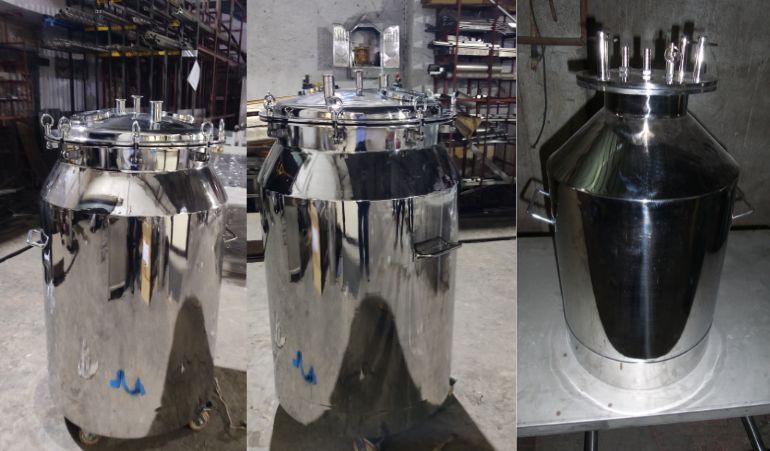318/3, 40 Shed Area, GIDC, Vapi, Gujarat, India
-
-
Mon-Sat 09:00 am – 06:00 pm
318/3, 40 Shed Area, GIDC, Vapi, Gujarat, India
Mon-Sat 09:00 am – 06:00 pm

A pressure vessel is a closed container designed to hold gases or liquids at a pressure different from the ambient pressure. These vessels are crucial components in various industries, including chemical processing, oil and gas, energy production, aerospace, and more. The fundamental principle behind pressure vessels is to store substances under pressure safely.
Typically, pressure vessels are cylindrical or spherical in shape and made from materials capable of withstanding high pressure, such as carbon steel, stainless steel, aluminum, or composites. The vessel's design and material selection depend on the specific application, pressure levels, temperature, and the type of substance being stored or processed.
Safety is a paramount concern in pressure vessel design and operation. Engineers follow stringent design codes and standards to ensure the vessels are structurally sound, providing adequate safety margins to withstand pressure fluctuations, thermal stresses, and other potential challenges.
Pressure vessels serve a myriad of functions, from storing compressed gases like air and nitrogen to containing volatile chemicals and serving as crucial components in industrial processes like heat exchangers, reactors, and separators.
In summary, a pressure vessel is an essential engineering marvel that enables the safe storage and processing of gases and liquids at elevated pressures. Their diverse applications and meticulous design are critical elements in industries where pressure containment and management are of utmost importance for the successful execution of various processes.